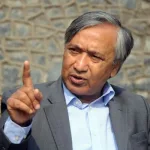It is the process of defusing antagonism and reaching agreement between conflicting parties, especially through some form of negotiation. And also, the study and practice of solving interpersonal and intergroup conflict. ‘Conflict’ from the Latin root ‘to strike together’ can be defined as any situation where incompatible activities, feelings, or intentions occur together. Conflict may take place within one person, between two or more people who know each other, or between large groups of people who do not know each other. It may involve actual confrontation between persons, or merely symbolic confrontation through words and deeds. The conflict may be expressed through verbal denigration, accusations, threats, or through physical violence to persons or property. Or the conflict may remain unexpressed, as in avoidance and denial.
A given conflict may be defined in terms of the issuesthat caused it, the strategiesused to address it, or the outcomesor consequences that follow from it. The issues of the conflict may be varied, ranging from the simple to the complex. Strategies for resolving or preventing the development of conflict can be classified as avoidance, diffusion, or confrontation. Turning on the TV rather than discussing an argument is a form of avoidance. Two workers who talk to their boss about a dispute is an example of diffusion. Insulting a person or physically harming someone are examples of confrontation. Courtroom litigation, like the trial and indictment of a person who has violated the law, also represents a form of confrontation.
The phrase conflict resolution refers specifically to strategies of diffusion developed during the second half of the twentieth century as alternatives to traditional litigation models of settling disputes. Based on the idea that it is better to expose and resolve conflict before it damages people’s relationships or escalates into violence, methods of conflict resolution were developed in business management and gradually adopted in the fields of international relations, legal settings, and, during the 1980s, educational settings.
Conflict resolution in education includes any strategy that promotes handling disputes peacefully and cooperatively outside of, or in addition to, traditional disciplinary procedures. The rise of violence and disciplinary problems, along with an increasing awareness of need for behavioral as well as cognitive instruction, spurred the development of conflict resolution programs in schools during the 1980s.
Most conflict resolution programs employ some form of negotiation as the primary method of communication between parties. In the negotiation process, parties with opposing interests hold conversations to settle a dispute. Negotiation can be distributive, where each party attempts to win as many concessions to his or her own self-interest as possible (win-lose), or integrative, where parties attempt to discover solutions that embody mutual self-interest (win-win). Research on games theory and the decision making process suggest that the face-to-face conversation involved in direct negotiation may actually influence people to act in the interest of the group (including the opposing party), or some other interest beyond immediate self-interest. Certainly the simple act of talking with the opposition sends a message that the parties are committed to positive resolution, and face-to-face negotiation inherently tends to be integrative in its consequences.
The success of a given instance of conflict resolution depends on the attitudes and skills of the disputants and of the mediator or arbitrator. In the workplace, for example, two people may have different ideas about how to accomplish a project. If one person decides to begin the project without the input of the other person, this person’s attitude has already jeopardized the conflict resolution process. It is the mediator’s role to clearly layout the issues of the conflict and to help the disputants arrive at the appropriate response to the conflict.
There are several responses to a conflict: withdrawing from a conflict; demanding or requesting the opposing party to concede; providing reasons the opposing party should concede (appealing to norms); proposing alternatives to the opposing party; and proposing ‘if’ statements, suggesting willingness to negotiate. Perspective taking, or articulating and validating the feelings and thoughts of the other party, reflects the higher orders of conflict resolution skills. Integration of interests reflects the highest level, leading to a consensual settlement of negotiations. According to the principles of conflict resolution, the only true solution to a conflict is one that attempts to satisfy the inherent needs of all the parties involved.
(Author is doing research in psychology and is a blogger)





